Sonha's story:
How switching jobs while pregnant (twice!) supercharged her career
It’s clear Sonha is no stranger to hard work. She has an impressive resume, having worked in people and strategy operations roles for big tech companies, and holds a BA in Economics from Stanford University and an MBA from Northwestern University’s Kellogg School of Management. But even the most Silicon Valley-clad resumes don’t prepare you for the puzzle of transitioning roles as an expecting parent. While most people would avoid switching jobs while pregnant, Sonha did it twice.
In 2018 Sonha was comfortable in her role on Apple’s Retail Product Management Team in Cupertino, having worked there for over four years. However, she knew this time of her life—her late twenties—was the time to hustle. She decided to begin a recruitment process that would move her into a more unstructured environment at an earlier stage tech company.
There was just one speed bump: she was ten weeks pregnant.
Her reservations about starting a new job and season of life (aka parenthood) were real, but her excitement about a new opportunity outweighed her concerns. Shortly thereafter, she accepted an offer from Pinterest to champion sales and operations strategy.
It was challenging to both onboard and prepare for parental leave at the same time, particularly without examples of (or guidance on) how to do so.
Returning from her five month parental leave, Sonha had to quickly figure out how to adjust to a new normal as a working parent at a fast-moving company. And while her early days back at work were difficult, the iterative process to set and maintain new boundaries ultimately proved transformative to her work.
“I hit my stride professionally about two months after that first return to work — and it wasn’t just how I felt; people noticed this change as well.”
This somewhat unconventional path — switching jobs while pregnant, then taking a longer paid parental leave — proved to be mutually beneficial for Sonha and her employer.
Stepping away from a new job to take parental leave was actually hugely beneficial for her career.
It forced Sonha to improve her productivity and efficiency and only focus on the highest priority work. This in turn improved her work output and accelerated her career.
Which is why when she moved to Google in early 2020 and shortly thereafter found out she was pregnant with baby #2, she felt confident that she could navigate starting a new job while pregnant (again), and also use it to her advantage to help her career.
From Apple to Pinterest, then Google to DoorDash, Sonha’s journey is full of personal growth and lessons for all expecting parents.
Want more details about Sonha’s experience interviewing while pregnant and navigating parental leave as a new employee? Dive deeper below to see how motherhood has supercharged Sonha’s career.

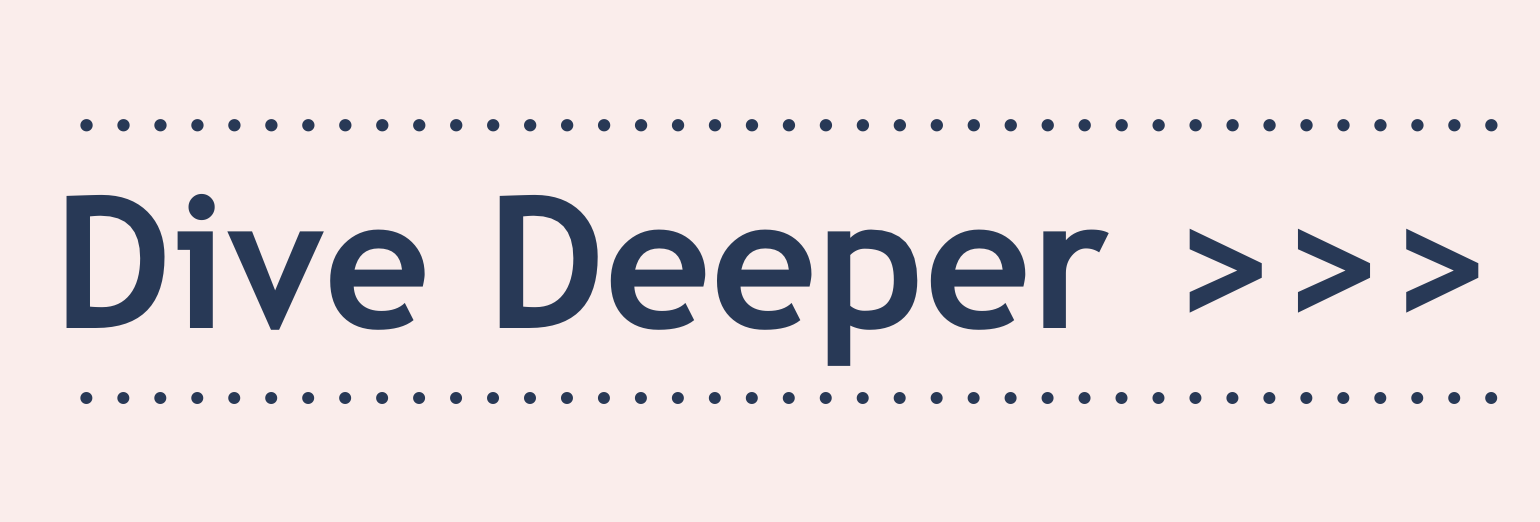
#1 Interviewing while pregnant - and disclosing your pregnancy
Understandably, women have a lot of trepidation related to interviewing while pregnant. They worry about the company’s reaction to their news should they accept the offer and disclose their pregnancy at that point. They often feel guilty about hiding this information, but feel strongly that it’s their private information to protect. Some women wonder if they owe it to the company to disclose their pregnancies even before they have told friends and family.
Sonha’s experiences interviewing while pregnant:
- She did not feel compelled to disclose her pregnancy while interviewing: With her first child, Sonha waited until she had an offer in hand, at which point she disclosed her pregnancy to HR as part of the final offer negotiation so that she could understand the details of the company’s parental leave policy. She told her manager shortly after accepting her offer, in order to start building a foundation of trust and transparency. "I felt uniquely supported by a manager who was also a working mom."
- Interviewing while pregnant was the BEST possible career move for her because it was the ultimate motivator: It’s incredibly hard even in the best of circumstances to return to work after parental leave. But Sonha knew that something new, exciting and challenging would make the return to work after parental leave slightly easier.
- She recommends negotiating the terms of your parental leave: Most companies have policies that you have to be at the company for over one year before receiving paid parental leave. Sonha was told that while that was her company’s policy, it was virtually never enforced. She was able to ensure that she would receive paid parental leave after only seven months of employment, despite the company policy.
- She waited until week 20 to disclose her second pregnancy — and wishes she had waited even longer: With Sonha’s second child (who was born during COVID), she waited until week 20 to disclose her pregnancy. In hindsight, she wishes she would have waited even longer as there was no real upside to disclosing at week 20. Her coworkers didn’t need that much advance notice, and she felt that she potentially missed out on some major projects because people knew she would be out in a few months.

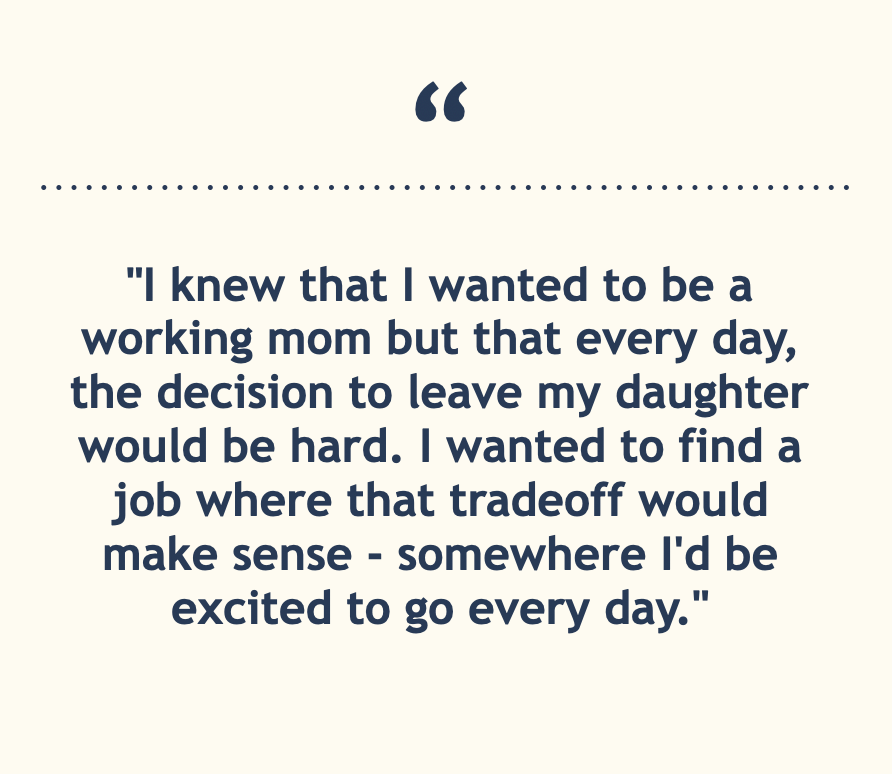
#2 Preparing for parental leave
Preparing a strong coverage plan is a huge pain point — and stressor — for most expecting parents. It’s important to ensure your work doesn’t stall, but it’s difficult to figure out exactly what to do with your work in your absence.
In Sonha’s case, she had two very different experiences preparing for parental leave, mostly reflecting the different nature of her jobs.
With Sonha’s first parental leave while at Pinterest:
- She had no example or model of how to create this coverage plan: She was the first person to take parental leave on her team, which meant there was no playbook or standard expectation for what would happen in her absence.
- She critically reviewed all of her workstreams to decide which ones she could sunset permanently: Her parental leave was a helpful forcing function for her to review every workstream in detail and decide which ones were less important - and could therefore just be stopped permanently instead of transitioned and maintained while she was out.
- She handed off discreet projects to five different people: This was challenging for her stakeholders, who then had to go to five people instead of one every time they had a question or need.
- She felt she had to rely on “personal capital” while asking people to cover for her: It was uncomfortable asking people who were already very busy to take on even more work for her as a “favor.”
With Sonha’s second parental leave while at Google:
- Since her role was more project-based, she was able to wind down projects instead of creating a full coverage plan: Similar to how a consultant would handle parental leave, she was easily able to stop her work with the plan to pick up new projects upon return.
- Her boss encouraged her to simply stop working prior to maternity leave, and not to stress about having to tell everyone or make a big pregnancy announcement — which was a great experience for her: Since she was pregnant during COVID, only people who had a “need to know” knew about her parental leave. She felt it was really nice to “just disappear” one day, disconnect, and enjoy her parental leave.
- Google has a “bungee program” to help employees cover their parental leaves: This career development program allows employees to swap in for another employee’s role on a temporary basis to gain new experience and exposure. Many people take advantage of this benefit for parental leave coverage.
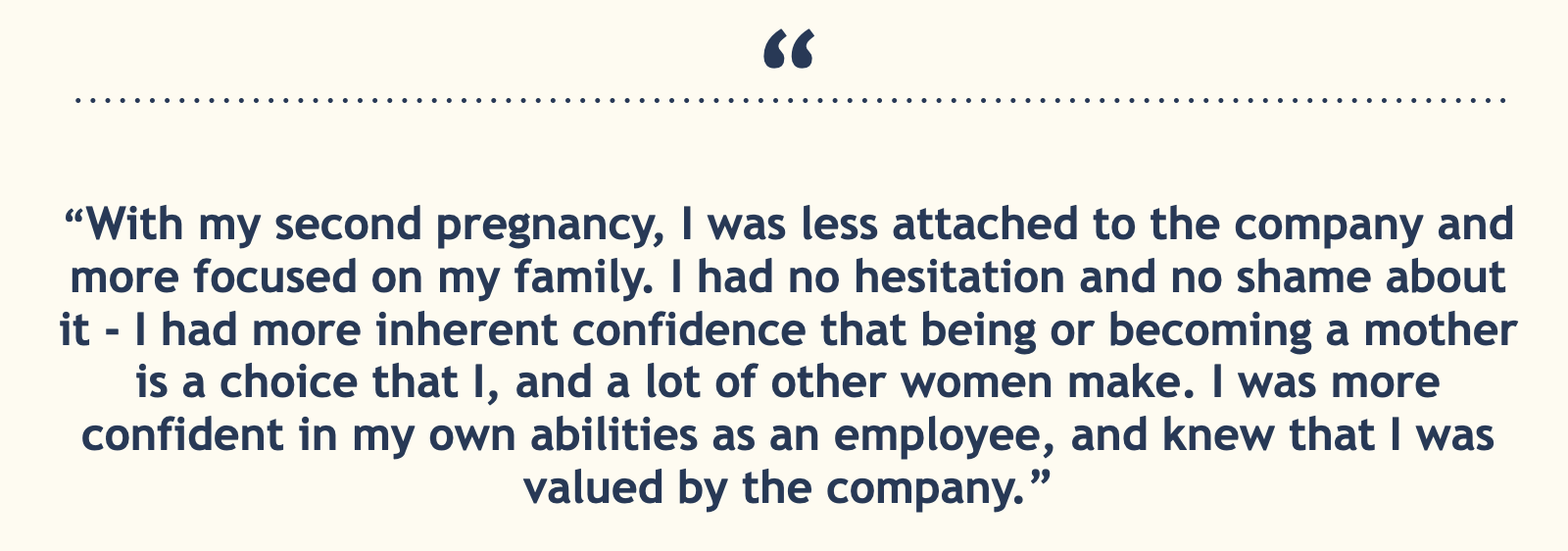
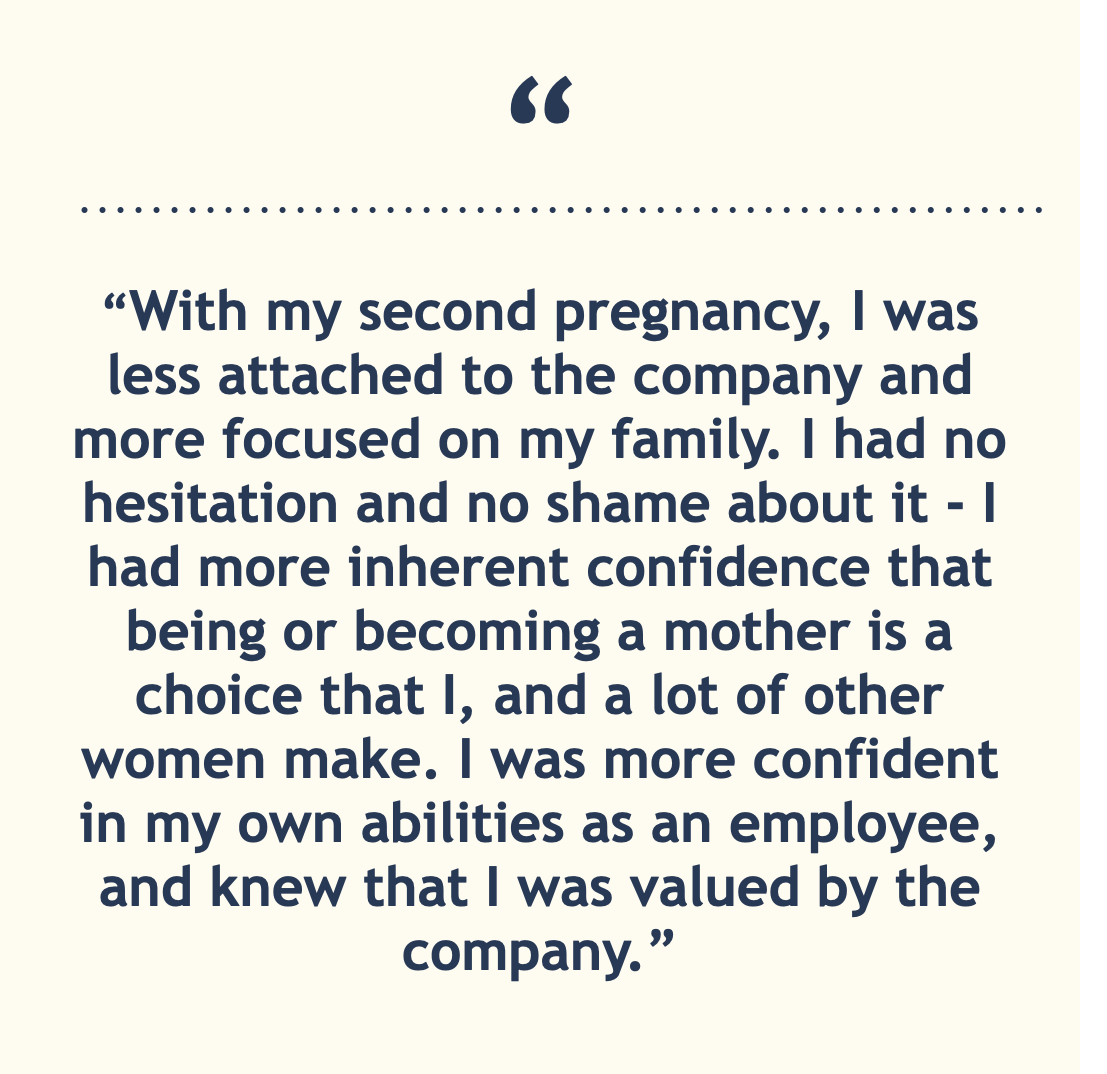
#3 Returning to work after parental leave
Sonha benefitted from better than average parental leave policies — five and six months at both companies — which had a positive impact on her ability to return to work ready to ramp back up quickly.
Things that were big positives with her return to work experiences:
- A week before she returned to work, her manager sent her a comprehensive summary of the changes that would impact her: It was sent with clear directions that she did not have to review it in advance, but helped ground her in important context, smoothing her re-entry process.
- Her company had a great ramp back program: For her first month back at work, she was paid as a fulltime employee but was allowed to set her own “ramp” schedule. She worked one day, then two, then three, then four days each week of that month.
- She didn’t take back any work for the first two weeks, and instead focused on easing back into a new work routine and acclimating herself to changes: This gave her the space to network, reconnect, and get fully updated on various work streams.
Sonha recommends that all managers consider the following when helping an employee return to work after parental leave:
- Think critically about how (and when) you communicate big changes: The first few weeks back at work are always overwhelming, and it can be even harder during these early days to digest news of major company changes like shifts in strategy or company reorganizations. “Read the room when it comes to returning parents. Try to understand if they want more mental space before springing anything big on them. They're already dealing with overwhelming emotions being a new parent away from their baby for the first time.”
- Performance reviews should be handled with care: Many companies have defined performance review timelines, which may not line up well with the timeline of an expecting or returning to work employee. Instead of simply slotting those expecting/new parent employees into that timeline, try to do performance reviews a few months before they go on leave or a few months after they return. This allows all parties to benefit and act on the feedback.
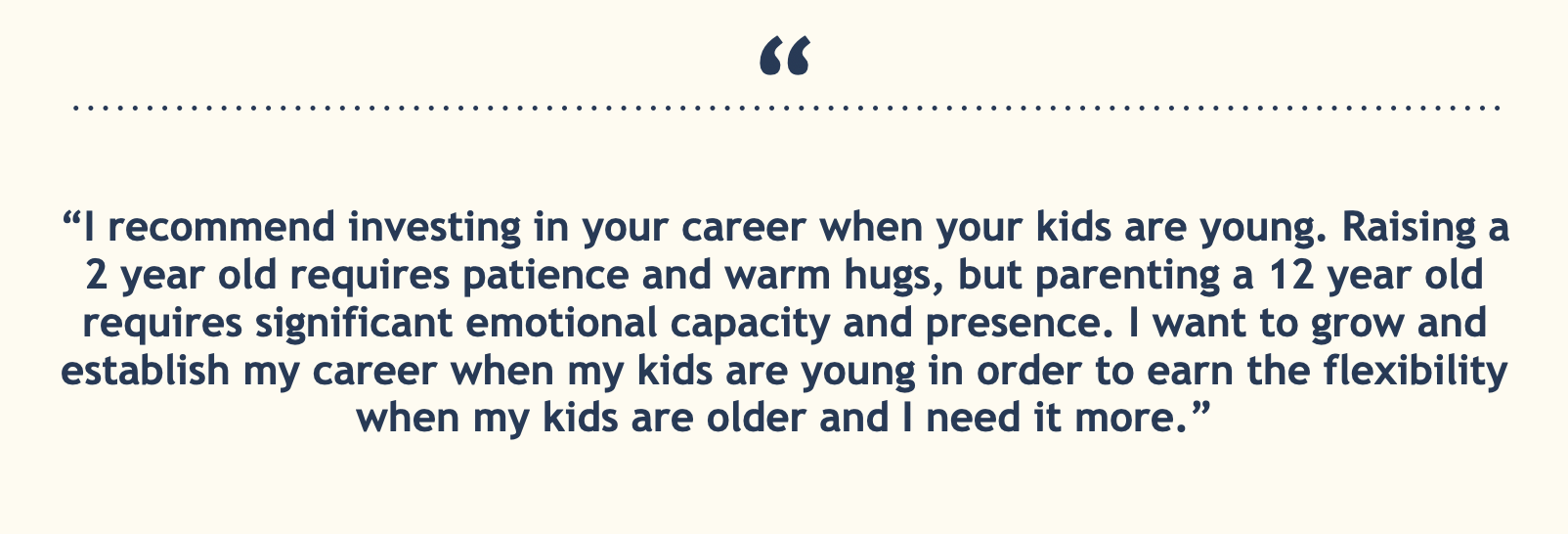
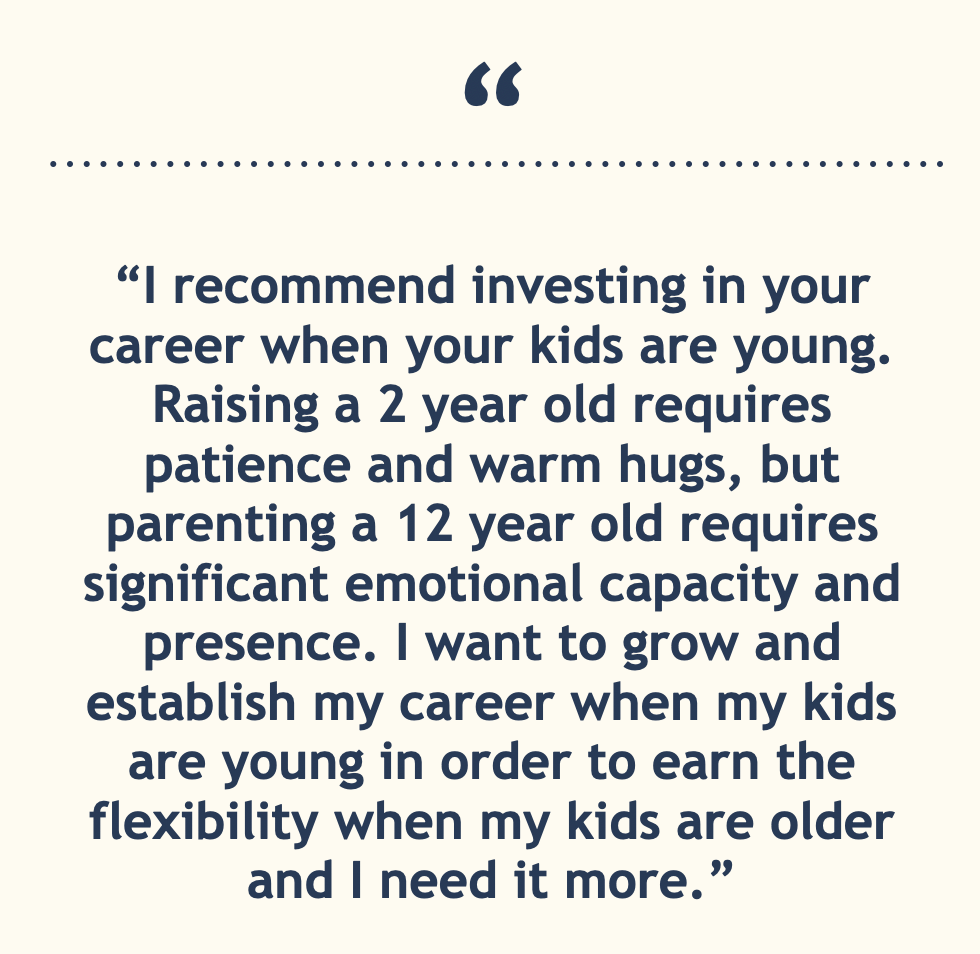
#4 Parenthood and career impact
If there’s one thing we whole-heartedly believe, it’s that being a fantastic parent and employee go hand-in-hand.
Sonha points to a few key anecdotes - and lessons she’s learned - about how parenthood can dramatically improve your work performance:
- She was her absolute best professionally about two months after returning from her first parental leave “and everyone saw this”: She hit her stride returning to work as a new parent: ruthlessly efficient, confident and direct. This wasn’t just her perception — this was validated via feedback from coworkers and in her official performance review.
- Saying NO because you want to spend time with your kids is actually a good forcing function for the business: People without kids tend to have too much time to dedicate to work — which means they’ll do things that they probably should not do. The forced prioritization of asking yourself “Is this work good enough to justify me being away from my kids?” helps you make better decisions, faster.
- Becoming a parent made her much more confident: She believes having less time made her more authoritative, confident and efficient. In turn, her coworkers respected her more.
- She had to set — and enforce — her boundaries: Without many examples of (new) working parents in her group, she had to define the behavior that was necessary for her success. Setting these boundaries for her lifestyle then translated nicely into enforcing positive constraints on the business. Still, being the only new parent in her immediate team meant that it was on her to define and enforce these norms.
- The time to hustle is now: Contrary to popular belief (and Maternal Bias), Sonha did not feel this was the time to lean back, downshift, or decrease her ambition. In fact, she felt the opposite: this was the exact right moment to double down on her career.
Want to read more of these stories?
We'll send them straight to your inbox every time we publish a new profile (two times per month).
Send them to me!

